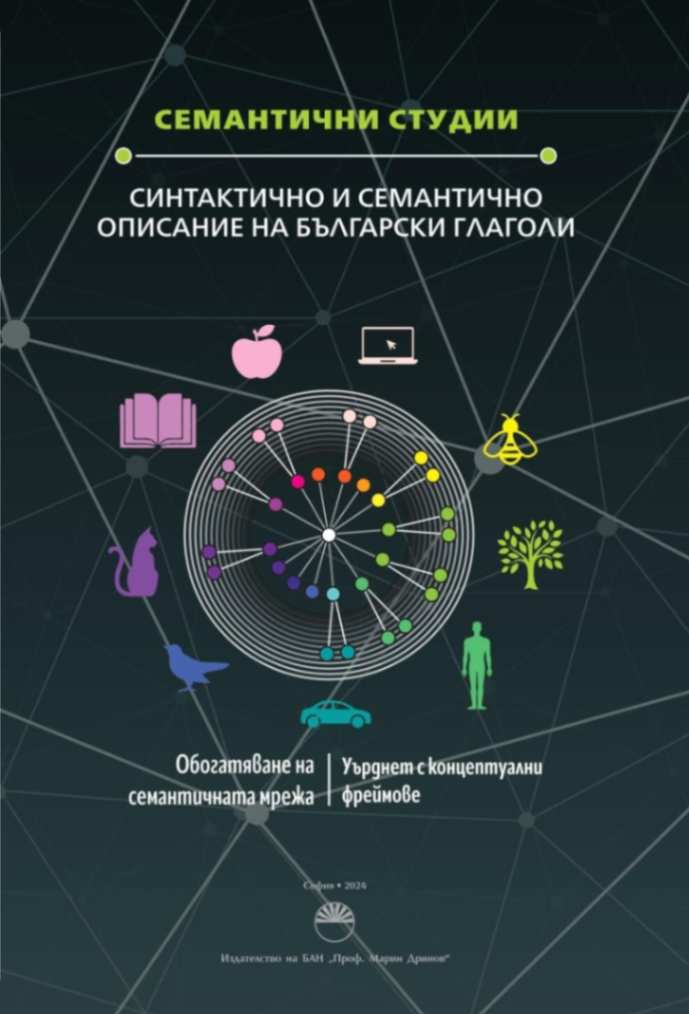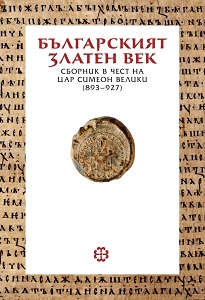
We kindly inform you that, as long as the subject affiliation of our 300.000+ articles is in progress, you might get unsufficient or no results on your third level or second level search. In this case, please broaden your search criteria.

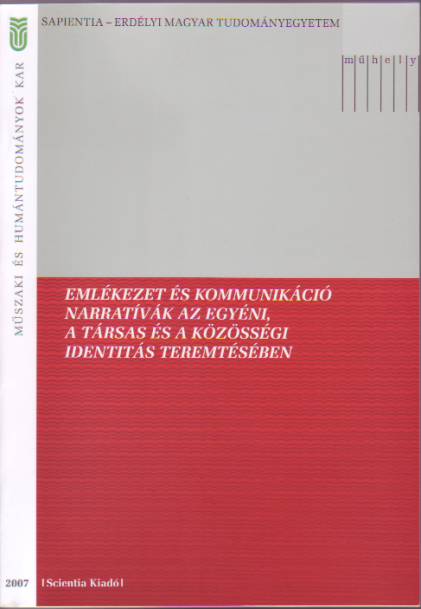
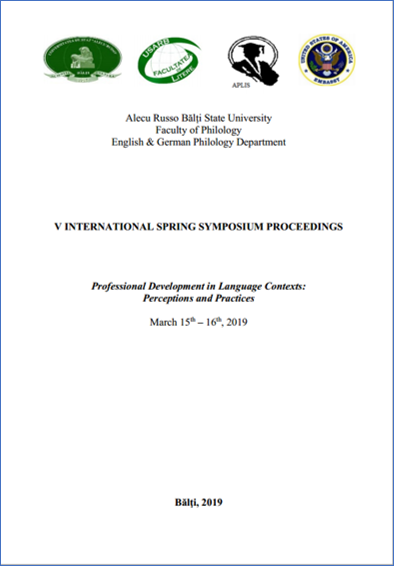
The traditional taboos of mankind are the taboos of the sacred and of the impure. The issues of language impoliteness, verbal aggression and taboo violence have only recently come under a more intensive scientific scrutiny. The paper offers some possibilities for successfully avoiding of taboo words, wherefore it can also be a contribution for a better understanding of taboos in our own, as well as in other cultures and languages. However, the existence of differences between the languages was not sufficient to predict target-deviant behaviour. The question whether language dominance determines cross-linguistic influence has been discussed controversially in studies on simultaneously bilingual students. Flouting taboos entails direct or indirect, social or cultural sanctions.
More...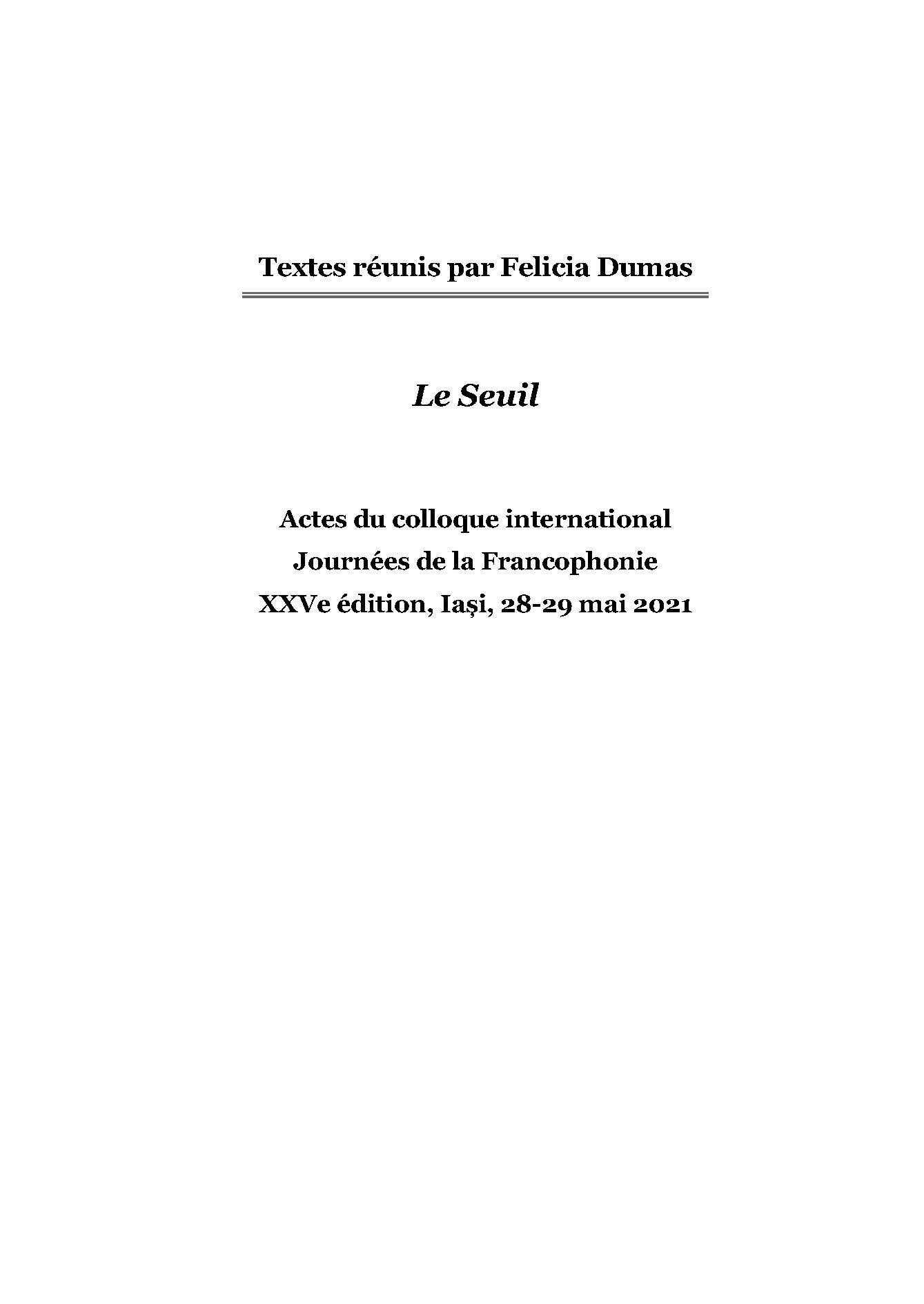
This paper proposes a semantical, anthropological and semiological approach to the iconostasis of the Orthodox churches, defined as a threshold between the nave and the sanctuary, between the visible world of the worshippers and the invisible world of the heavenly powers and God. The paper considers a lexical-semantic study of two nouns used in French to refer to this dividing wall, as well as other words (and phrases) which designate other elements of the architectural ensemble which compose the iconostasis; this semantical study will be accompanied by a semiological analysis of the symbolism of the iconostasis (based on the works of liturgical hermeneutics) and of the the liturgical gestures which the iconostasis determines and guides from a semiological point of view, supported by a corpus of notes recorded in France and in Romania (during the liturgical practice) and by a few theological works.
More...
Our aim is to analyze a few key factors, which determine the process of borrowing words of English origin into French, and the barriers that these words surpassed in order to be integrated in the French vocabulary. As we noticed, in the everyday speech, there are many words of English origin that have been inserted by the speakers and which are used frequently. What are the reasons that determine the use of this type of words? How can we check if the use of this kind of words is necessary? What solutions can we propose in order to avoid the use of this type of neologisms without a well-defined reason? These are some important questions to which we will try to find appropriate explanations and examples taken from everyday speech.
More...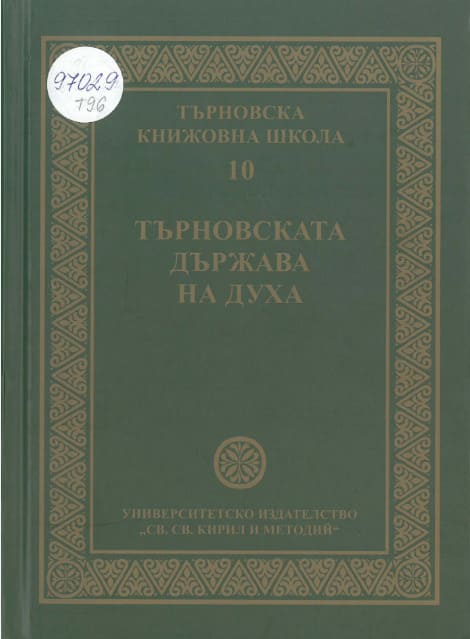
The article considers the problem about the continual growing of the functional power of the Bulgarian literary language between the IX and XIV century, owing to the purposeful language policy. The result is the conversion of the Bulgarian language in the third and last classical language in Europe. The Innovative in the process of work is the characteristics of classical languages from the sociolinguistic type of view Special accent is placed on the methods of research of Old Bulgarian literary language and the process of forming the rest of the literary languages in the territory of the modern Slavia Orthodoxa.
More...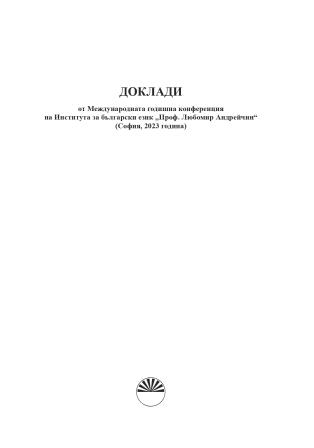
In this text, the main object are the composita of the type koy shte da e in the contemporary Bulgarian language. Through specific examples, I establish the specificity of their semantics and their uses in the sentence. The adopted hypothesis is that they are used as indefinite pronouns, and that they share some of the semantic features of the indefinite pronouns of the types koy da e and koyto shte da e. I present the similarities and differences with other types of indefinite pronouns. Emphasis is placed on the paradigmatization of the composita of the koy shte da e type as indefinite pronouns. Some cases of ambiguity of the functions of this type of indefinite pronouns are considered.
More...
The paper discusses the systematic description of multiword expressions (MWEs) as objects of grammar. The definition of such units is proposed, their scope is determined, criteria for their identification are derived. A framework for description of the grammatical properties of MWEs is presented that takes into consideration two distinct types of MWEs – syntactic phrasemes and phrasemes. Main normative problems related to the use of syntactic phrasemes are noted.
More...
Bulgarian science has not yet established the average speech rate of adult native speakers of Bulgarian during a talking task. This pilot study aims to measure the average rate of natural speech by applying a methodology in which the measurable speech unit is syllable per minute. 30 individuals (10 men and 20 women) participated in the experiment. They were asked to talk for at least 2 minutes on a topic of their choice. The study found that the speech rate was 280 syllables per minute. Within this pilot experiment, a comparison was also made between men’s and women’s speech, showing a very insignificant difference genderwise.
More...
The article examines insufficiently clarified issues regarding the construction of the Bulgarian terminology in the field of finance and commodity-monetary relations. 3 patericon stories from the Sinaitic Patericon are analyzed. The study involves a significant number of witnesses of the transmission of these texts over a vast chronological segment spanning the 10th – 19th centuries.
More...
Drawing on the Old Bulgarian translations of Athanasius of Alexandria and Basil the Great, the author traces the use of allegorical theology in the 4th century and its reflection as Прїточное богословие during the 10th century. The linguistic comparison between the use of allegorical key-names by Athanasius of Alexandria and the process of conceptualization of ordinary names to divine predicates and theological terms by Basil the Great provides the necessary discourse for the observations on the language practice of the Preslav’s men of letters. When illustrating the process of deriving human knowledge from the literal to the figurative interpretation of a certain story from the Bible, John the Exarch and Constantine of Preslav relied on a common theological platform, also known from the original works of the two authors. The criteria for the correctness of the exegesis according to the two authors are specified.
More...
The paper compares characteristic dialect features of the Bulgarian dialects from the Debar (Dibra) region in the Republic of Albania and features of the Rhodope dialects. The aim of the comparison is to clarify the nature of the similar or identical features in the reflexes of the back nasal and back jer vowel in different phonetic and phono-morphological positions. Attention is also paid to the dialect lexeme ушники – ‘earrings’, which shows common lexical features in the considered area.
More...
The lexical diagnostic dialect markers of the Bulgarian dialects in Bessarabia have not been studied at all. The preparation of a complete markers’ list at the different language levels is vital for determining the genetic kinship of these dialects.
More...
Prof. Lyubomir Miletich is the founder of the academic discipline of Bulgarian dialectology. His fundamental work on the Eastern Bulgarian dialects is the basis for all subsequent researchers of this language area, an important part of which is the Shumen dialect considered by Мiletich to be archaic and important for the classification of Bulgarian dialects. Here I make an overview of the works dedicated to the Shumen dialect, which are necessarily based on “Das Ostbulgarische”.
More...
The paper examines the hodonyms (names of streets and boulevards) in the city of Burgas from the end of the 19th century till the present day. It presents the reasons for their naming and renaming in different periods of the history of the city and the country
More...
The Christian doctrine regulates human life, behavior, and relationships with relatives and strangers through the commandments. Breaking the commandments is considered a sin, and overcoming one’s own weakness leads to one’s betterment and one’s coming closer to God, which is ultimately the goal of every Christian’s life. The desire for wealth and well-being is characteristic of human nature, but the Bible says otherwise: “Indeed, it is easier for a camel to go through the eye of a needle than for someone who is rich to enter the kingdom of God." (Luke 18, 25). This article examines the characteristics of the perception of wealth and work from the perspective of popular culture and religion.
More...
In this paper, I discuss Russian deverbal zero-derived nouns, both prefixed (vyezd ‘departure’) and compound (gvozdodёr ‘tool for pulling out nails’, snegopad ‘snowfall’). It turns out that prefixed nouns mainly denote a situation or its result, while compound nouns may either denote a situation (snegopad) or a participant (agent or a similar instrument-like participant like gvozdodёr). The interpretation depends on the transitivity of the base verb: if it is transitive, the participant interpretation is chosen (gvozdodёr, lesorub ‘lumberjack’, lit. ‘wood-cut’), while with intransitive verbs, the default interpretation is situational (snegopad, ledoxod ‘ice drift’). I explain this possibility by the fact that in complex words, the zero suffix is attached simultaneously with root compounding, and the second root (e.g., -dёr-, -rub-) is not usually a word and does not have a fixed interpretation. By contrast, in words like vyezd the zero suffix is attached to the existent prefixed verb vyexat’ / vyezžat’ ‘drive out’. The properties of the verb are retained under nominalization, including the situational interpretation.
More...
The paper discusses the discourse marker де in the languages of the Balkan Sprachbund (Bulgarian, Albanian, Greek, and Romanian). Theories on the etymology of де in the Balkan languages are analyzed in view of the likelihood of a substratum, Turkic or Slavic origin. The focus is on the use and meaning of the discourse marker. In Bulgarian, Greek, and Albanian, three main meanings can be distinguished, along with some set phrases, while Romanian deviates from the Balkan pattern in the use of the marker.
More...
The study analyzes the acoustic characteristics of the bilabial consonants bj, pj and mj in the Bulgarian language and of the bilabial consonants b, p and m in the Romanian language, when preceding the graphic combination ea. The comparative analysis is based on the type of F1 and F2 transition, as the transition of F1 frequencies with soft consonants is lower at the beginning (onset) and higher at the end (offset), while F2 is characterized by higher initial frequencies and lower final frequencies. The experiments show that the acoustic characteristics of the Romanian bilabial consonants b, p and m before ea are close to the acoustic characteristics of the Bulgarian soft bilabial consonants.
More...